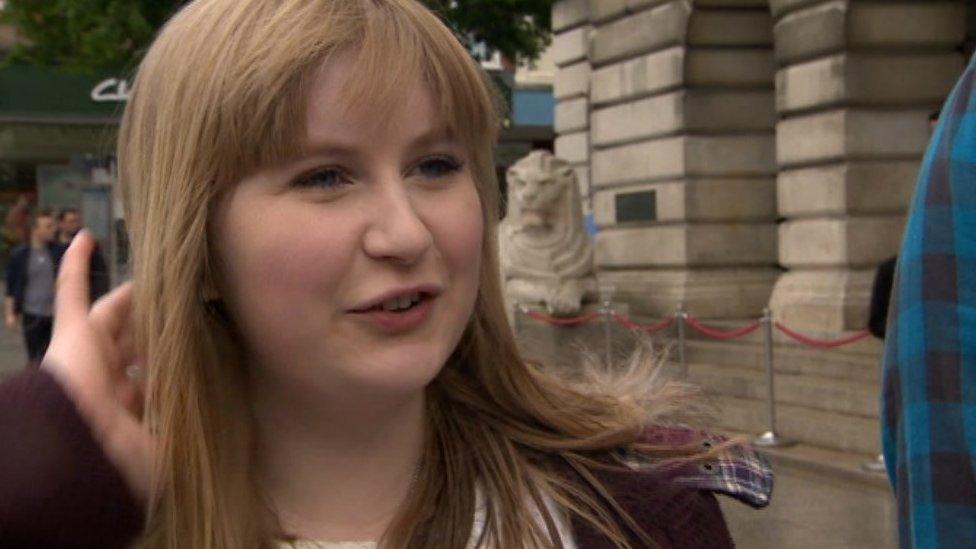Street harassment: Women urged to report catcalling
- Published
Rebecca Broad: "What I experience and what most women and children experience on a more regular basis is street harassment"
A woman who was sexually harassed in the street has said she was surprised after a police commissioner urged her to call 999.
Rebecca Broad had been walking a dog in Exeter on a sunny Sunday afternoon in August when she "got catcalled out of a car out of the blue".
The 24-year-old tweeted asking if anything was being done to tackle catcalling in Exeter or nationally.
PCC Alison Hernandez urged her to report the incident to police.
The Devon and Cornwall commissioner said young women often felt they should deal with such harassment by themselves because there was a perception that they had to be resilient.
"It happened to me too when I was young," she said. "So I think there's a particular need to help educate women to make sure that they do reach out for help if it's really affecting their lives."
Allow X content?
This article contains content provided by X. We ask for your permission before anything is loaded, as they may be using cookies and other technologies. You may want to read X’s cookie policy, external and privacy policy, external before accepting. To view this content choose ‘accept and continue’.
Ms Broad, a freelance writer and social media manager, said: "It really worried me that I experienced this on a regular basis.
"I think there's a lot of attention quite rightly on upskirting and indecent exposure and committing sexual assaults, but what I experience and what most women and children experience on a more regular basis is street harassment.
"Whether that's catcalls, sexual language, none of it is acceptable."
Allow X content?
This article contains content provided by X. We ask for your permission before anything is loaded, as they may be using cookies and other technologies. You may want to read X’s cookie policy, external and privacy policy, external before accepting. To view this content choose ‘accept and continue’.
She said as a result she no longer wore skirts while out, "or if I do I wear shorts underneath".
"It changes how I look, where I go and what time," Ms Broad said.
Responding to Ms Hernandez advice to call 999 she said: "Wow - didn't even think to do this. I guess that shows how ingrained it is in me to hear comments from cars and bow my head and accept that they're part of walking the streets alone."
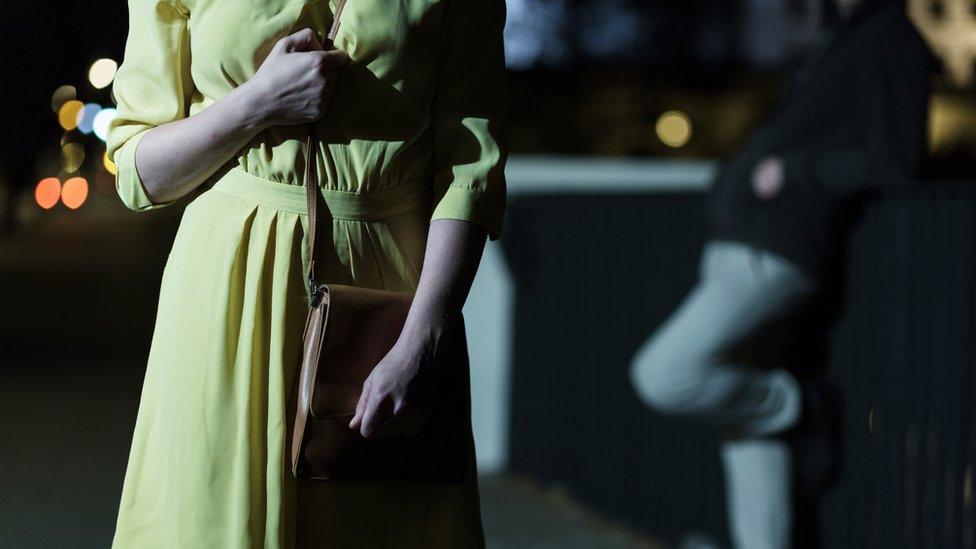
Women are feeling "ashamed and degraded" by sexual harassment in public said charity Plan International UK
The catcalling "took me back to a place a few months previously" when a car pulled up alongside her.
"A man rolled the window down and described precisely how he was going to sexually assault me," she said.
"So having that playing on my mind every time a I see a car and someone shouting, it's very difficult not to feel very threatened."
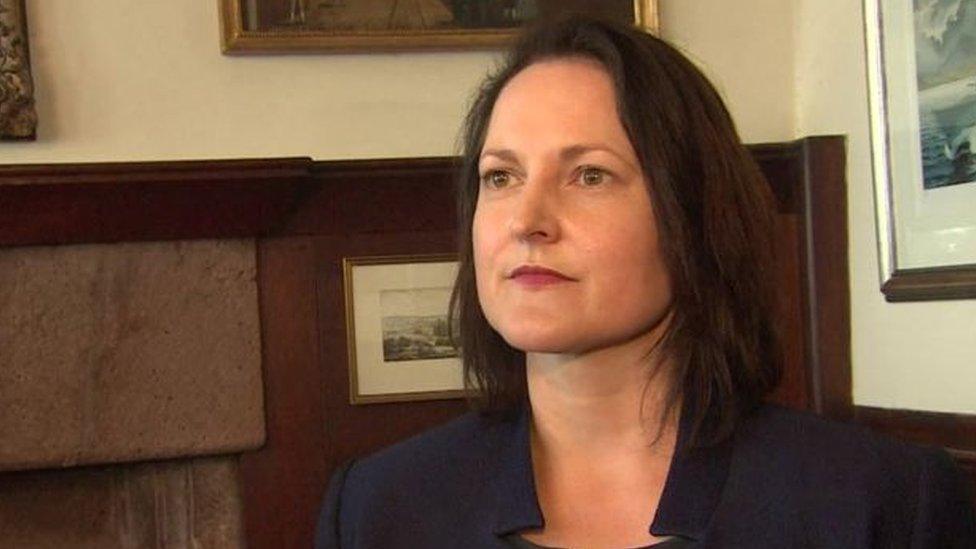
Alison Hernandez said she had experienced street harassment as a young woman
Children's charity Plan International UK said according to its research, 66% of girls and young women have been sexually harassed in public. , external
Devon and Cornwall Police said it treated "sex or gender-based hate crimes or incidents seriously".
Such offences included "misogynistic acts such as wolf-whistling or catcalling", the force said, and it encouraged people to report them.
Ms Hernandez said she would like to see an app on which women could record or report cases of sexual harassment.
Rebecca Hitchen, of End Violence Against Women, said sexual harassment forced women to pay for taxis, take longer routes home and avoid going home late on their own.
"It is part of wider violence against women and consequence of gender inequality," she said.
"It becomes part of the fabric of girls' experiences from an early age."
Information and help on dealing with sexual abuse or harassment can be found on this page.
- Published19 October 2019

- Published17 September 2019
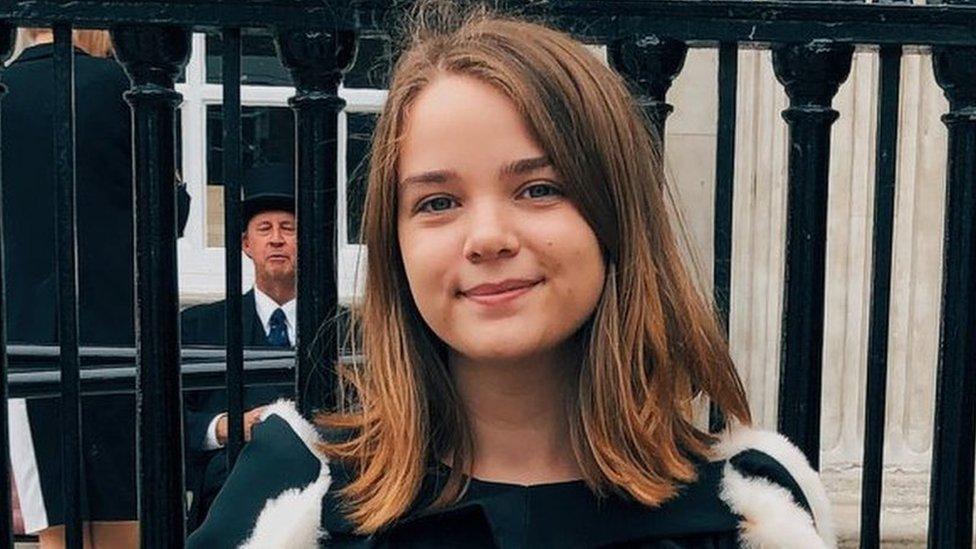
- Published9 July 2018

- Published21 June 2018
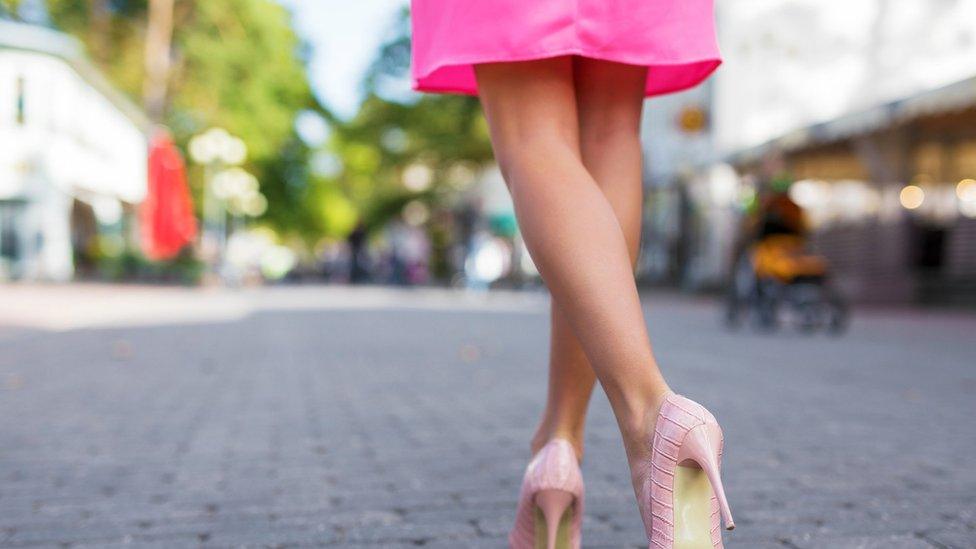
- Published6 March 2018
- Published6 October 2017

- Published13 July 2016
